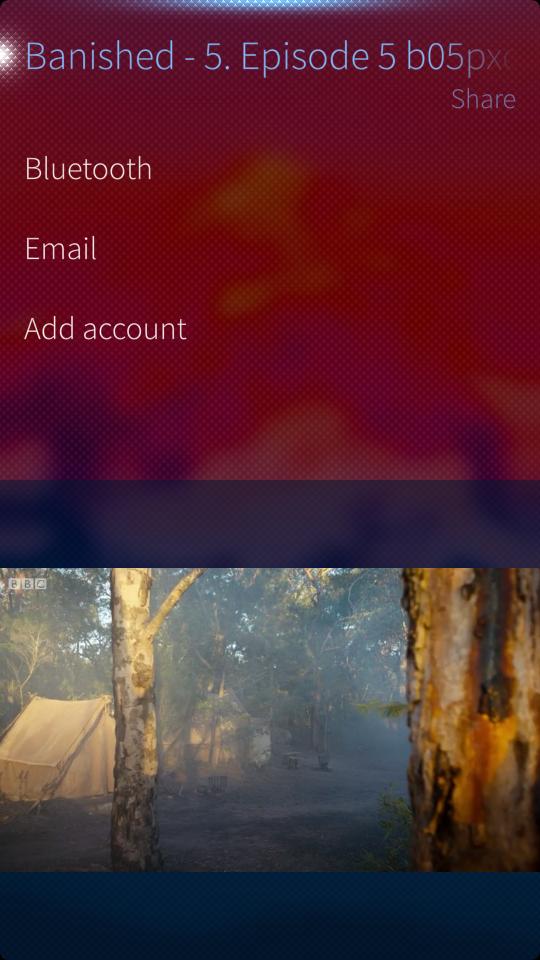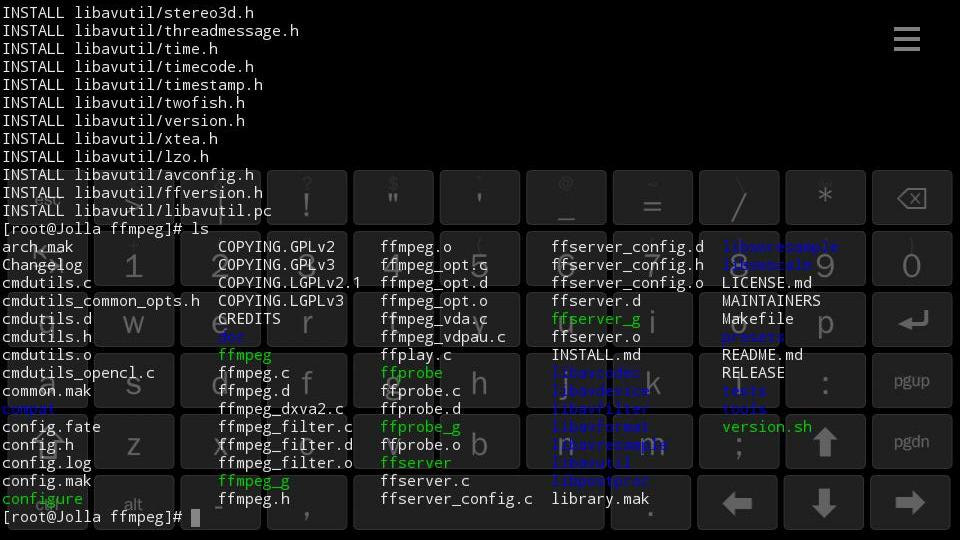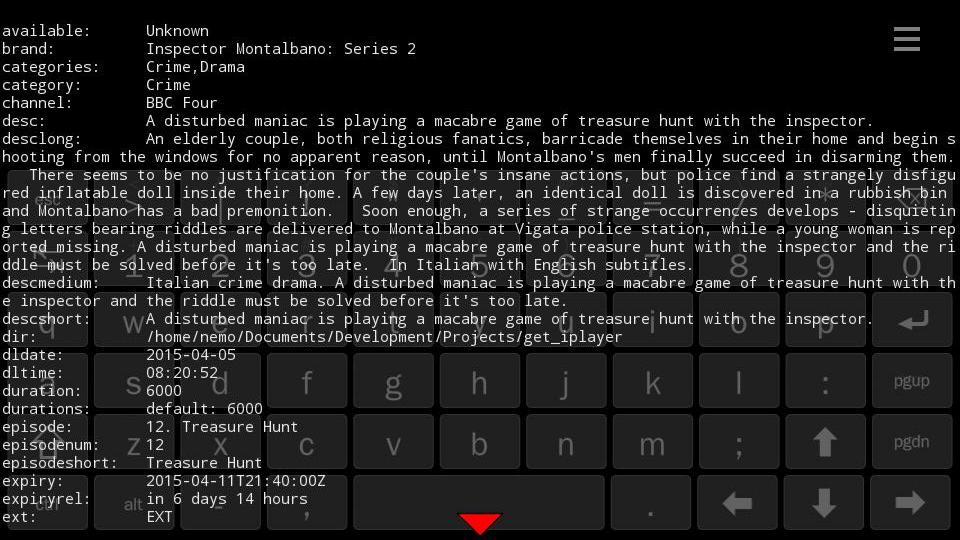List items
Items from the current list are shown below.
Getiplay
Android also has the claim of being Linux, which in theory means it has access to the existing - incredibly mature - Linux software ecosystem. In practice for most people this is moot, since their focus is on the very different type of software available from the Play Store. For developers though, this can be important. For me the distinction is important partly because I'm already familiar with Linux, and partly as a matter of principal. In my world computing is very much about control. I love the idea of having a computer in my pocket not because it gives me access to software, or as a means of communication, but because it's a blank slate just waiting to perform the precise tasks I ask of it. That sounds authoritarian, but better to apply it to a computer than a person. I'm pretty strict about it too. Ever since being exposed to the wonder of OPL on a Psion 3a (way back in 1998), direct programmability has always been one of the main critiera when choosing a phone.
This weekend was the Easter Bank Holiday, meaning a lengthy train ride across the country to visit my family. I wanted to download some radio programmes and possibly some videos to watch en-route, but didn't get time before we set off. I'd managed to install the Android version of BBC iPlayer on my Jolla, but for some reason this doesn't cover BBC Radio, which has been split off into a separate application. Hence I embarked on a second journey while sitting on the train: installing get_iplayer entirely using my phone. This meant no use of a laptop with the Sailfish IDE, and building things completely from source as required.
The experience was enlightening: during the course of the weekend I was able to install everything from source straight on my phone. This included the rtmp streaming library and ffmpeg audio/video converter all obtained direct from their git repositories, all just using my phone.
Why would anyone want to do this when you can download the BBC radio app from the store? You wouldn't, but I still think it's very cool that you can.
Here's how it happened.
get_iplayer is kind-of underground software. It shouldn't really exist, and the BBC barely tolerates it.
It's written in Perl and is currently available from http://www.infradead.org/get_iplayer. Getting it is just a matter of running the following command in the shell:
git clone git://git.infradead.org/get_iplayer.git
Perl is already installed on Sailfish OS by default (or at least was on my phone and is in the repositories otherwise). There were some other Perl libraries that needed installing, but which were also in the repositories. I was able to add them like this:
pkcon install perl-libwww-perl pkcon install perl-URI
Because it's Perl, there's no need to build anything, and at this point get_iplayer will happily query the BBC listing index and search for programmes. However, trying to download a programme generates an error about rtmpdump being missing.
The rtmpdump library isn't in the Sailfish repositories, but can be built from source really easily. You can get it from http://rtmpdump.mplayerhq.hu, and I was able to clone the source from the git repository:
git clone git://git.ffmpeg.org/rtmpdump
Building from source requires the open-ssl development libraries, which are in the repositories:
pkcon install openssl-devel
After this it can be built (although note developer mode is needed to complete the install):
cd rtmpdump make devel-su make install cd ..
As part of this build the librtmp library will be created, which needs to be added to the library path.
echo /usr/local/lib > /etc/ld.so.conf.d/librtmp.conf ldconfig
This should be enough to allow programmes to be downloaded in flv format. However, Sailfish won't be comfortable playing these unless you happen to have installed something to play them with. get_iplayer will convert them automatically as long as you have ffmpeg installed, so getting this up and running was the next step. Once again, the ffmpeg source can be cloned directly from its git repository:
git clone git://source.ffmpeg.org/ffmpeg.git
The ffmpeg developers have done an astonishing job of managing ffmpeg's dependencies. It allows many extras to be baked into it, but even without any of the other dependencies it'll use the autoconfig tools to allow a minimal build to be created:
pkcon install autotools cd ffmpeg ./configure make make install cd ..
ffmpeg is no small application, and compiling it on my phone took over an hour and a half. I know this because we watched an entire episode of Inspector Montalbano in the meantime, which get_iplayer helpfully tells me is 6000 seconds long!
Nonetheless, once completed the puzzle is complete, and get_iplayer will download and convert audio and video to formats that can be listened to or viewed on the Sailfish media player.
For me there's something beautiful about the ability to build, install and run these applications directly on the phone. get_iplayer is command-line, so lacks the polished GUIs of the official applications, but it's still very efficient and usable. I get that this makes me sound like Maddox, but that only makes me more right.
Three, my mobile carrier, insists I'm using tethering and cuts my connection whenever I try to download files using get_iplayer. It's annoying to say the least, but highlights the narrow gap between GNU/Linux on a laptop and GNU/Linux on a Sailfish OS phone.



Comments
Uncover Disqus comments